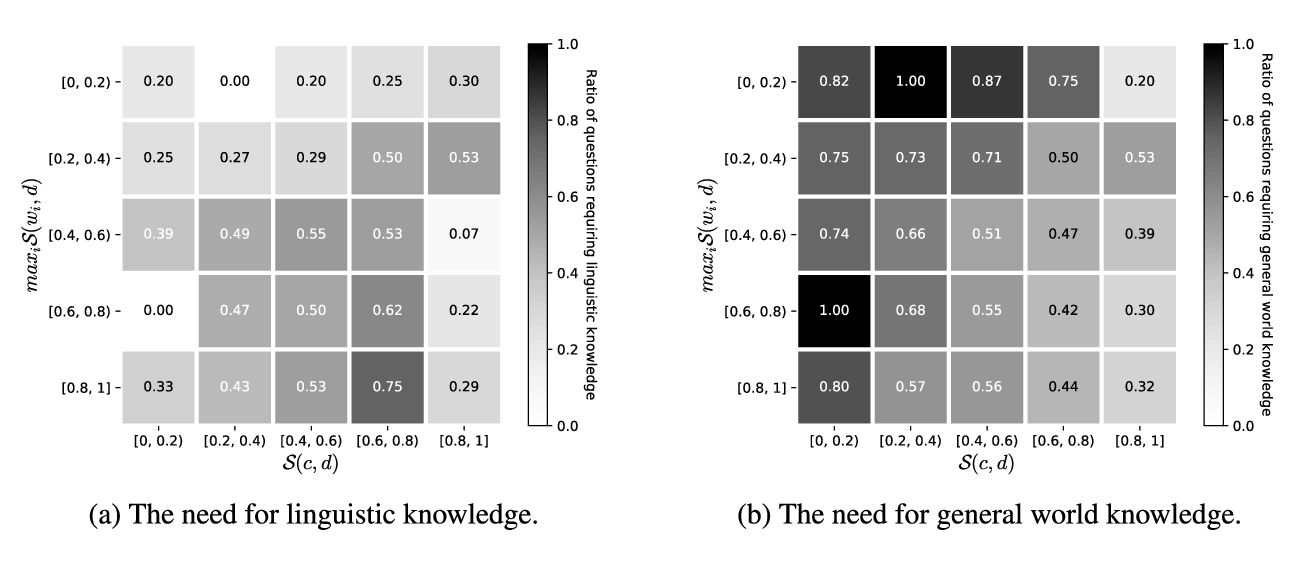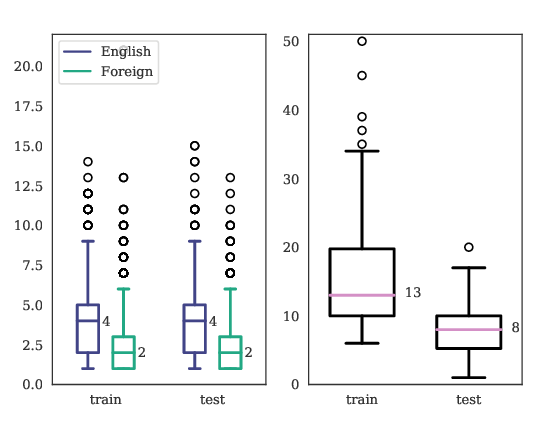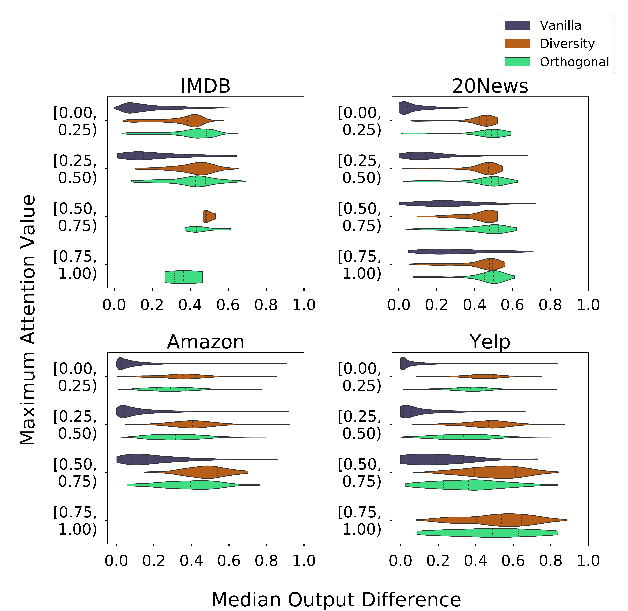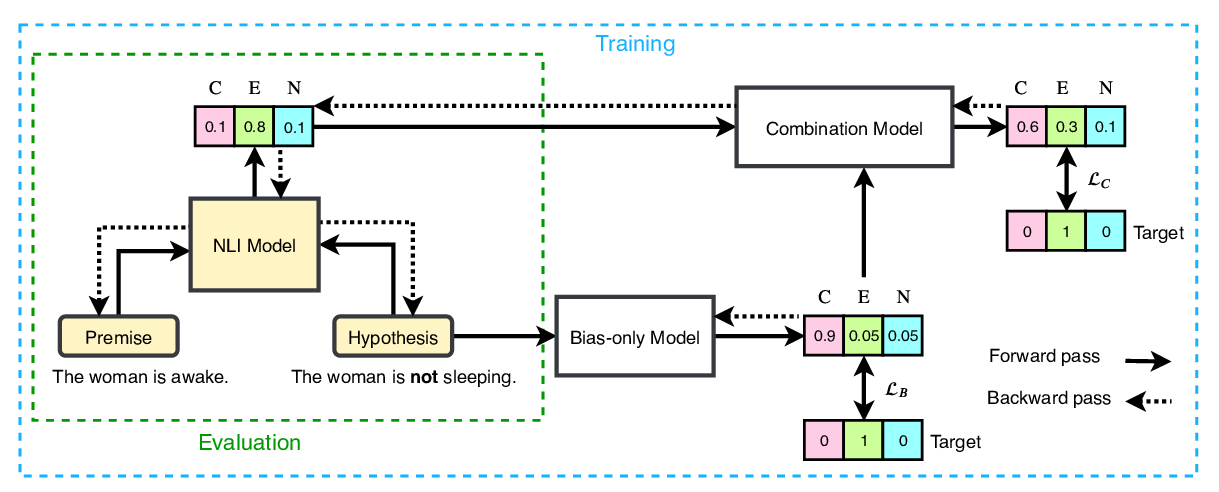WinoWhy: A Deep Diagnosis of Essential Commonsense Knowledge for Answering Winograd Schema Challenge
Hongming Zhang, Xinran Zhao, Yangqiu Song
Resources and Evaluation Long Paper
Session 9B: Jul 7
(18:00-19:00 GMT)

Session 10B: Jul 7
(21:00-22:00 GMT)

Abstract:
In this paper, we present the first comprehensive categorization of essential commonsense knowledge for answering the Winograd Schema Challenge (WSC). For each of the questions, we invite annotators to first provide reasons for making correct decisions and then categorize them into six major knowledge categories. By doing so, we better understand the limitation of existing methods (i.e., what kind of knowledge cannot be effectively represented or inferred with existing methods) and shed some light on the commonsense knowledge that we need to acquire in the future for better commonsense reasoning. Moreover, to investigate whether current WSC models can understand the commonsense or they simply solve the WSC questions based on the statistical bias of the dataset, we leverage the collected reasons to develop a new task called WinoWhy, which requires models to distinguish plausible reasons from very similar but wrong reasons for all WSC questions. Experimental results prove that even though pre-trained language representation models have achieved promising progress on the original WSC dataset, they are still struggling at WinoWhy. Further experiments show that even though supervised models can achieve better performance, the performance of these models can be sensitive to the dataset distribution. WinoWhy and all codes are available at: https://github.com/HKUST-KnowComp/WinoWhy.
You can open the
pre-recorded video
in a separate window.
NOTE: The SlidesLive video may display a random order of the authors.
The correct author list is shown at the top of this webpage.
Similar Papers
Investigating Prior Knowledge for Challenging Chinese Machine Reading Comprehension
Kai Sun, Dian Yu, Dong Yu, Claire Cardie,

PuzzLing Machines: A Challenge on Learning From Small Data
Gözde Gül Şahin, Yova Kementchedjhieva, Phillip Rust, Iryna Gurevych,

Towards Transparent and Explainable Attention Models
Akash Kumar Mohankumar, Preksha Nema, Sharan Narasimhan, Mitesh M. Khapra, Balaji Vasan Srinivasan, Balaraman Ravindran,

End-to-End Bias Mitigation by Modelling Biases in Corpora
Rabeeh Karimi Mahabadi, Yonatan Belinkov, James Henderson,
